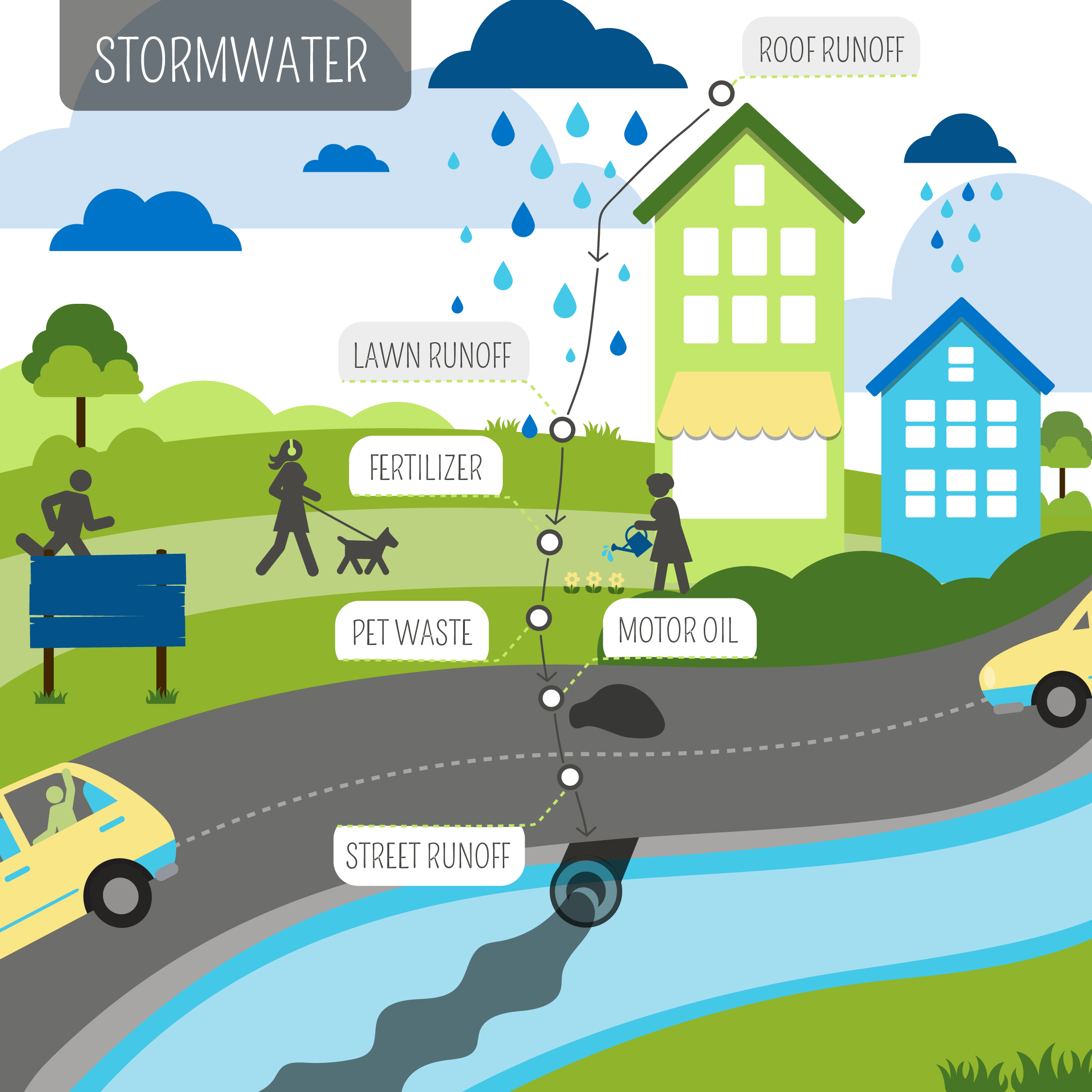
Ben Morgan, PE, CFM
County Engineer
678-493-6074
Send Us An Email
Mission Statement
The goal of the County’s Stormwater Management Plan is to meet the requirements of all NPDES (National Pollutant Discharge Elimination System) Stormwater Permits issued by the Georgia EPD (Department of Natural Resources Environmental Protection Division), the MNGWPD (Metropolitan North Georgia Water Planning District) Watershed Management Plan, the FEMA (Federal Emergency Management Agency) National Flood Insurance Program Community Rating System (CRS), and the requirements of the Georgia Stormwater Management Manual (GSWMM). This includes public education, involvement, and outreach on stormwater impacts/pollution prevention, construction site runoff control, regulation of public and private stormwater infrastructure, and illicit discharge detection and elimination.
Goals:
The goal of the County’s Stormwater Management Plan is to meet the requirements of all NPDES (National Pollutant Discharge Elimination System) Stormwater Permits issued by the Georgia EPD (Department of Natural Resources Environmental Protection Division), the MNGWPD (Metropolitan North Georgia Water Planning District) Watershed Management Plan, the FEMA (Federal Emergency Management Agency) National Flood Insurance Program Community Rating System (CRS), and the requirements of the Georgia Stormwater Management Manual (GSWMM). This includes public education, involvement, and outreach on stormwater impacts/pollution prevention, construction site runoff control, regulation of public and private stormwater infrastructure, and illicit discharge detection and elimination.
Objectives/Performance Measures:
1) Maintain annual NPDES Municipal Separate Storm Sewer System (MS4) permit from EPD.
2) Enforce NDPES permits for stormwater discharges associated with construction activity.
3) Maintain audit and annual good faith reviews initiated by MNGWPD.
4) Maintain annual CRS recertification from FEMA.
5) Ensure new development adheres to GSWMM regulations for stormwater quantity and quality.
6) Conduct annual public outreach/education activities in coordination with Upper Etowah River Alliance.
7) Respond to citizen inquiries and complaints regarding stormwater impacts within 3 business days.
8) Inspect 20% of all public and private stormwater infrastructure annually.
9) Design county stormwater infrastructure improvement projects.
10) Regulate private stormwater infrastructure maintenance through outreach.
11) Provide semi-annual stormwater pollution prevention training to County staff
How Does Stormwater Pollution Occur?
A watershed is all the land area that drains into a stream, river, lake or other body of water. Stormwater runoff – rainfall that does not soak into the ground, but instead flows over the land into these surface waters – is important to replenish our water supply, but can also harm our watersheds if pollutants are collected along the way.
Stormwater runoff occurs naturally, but as development and the amount of impervious surface such as rooftops, roads and parking lots increase in a watershed, the natural capacity of the soil and vegetation to filter and take up rainfall decreases, and more rainfall becomes stormwater runoff. This can produce negative impacts such as erosion, flooding and contamination of our water.
Stormwater pollution can make monitoring and treatment of our drinking water more difficult and costly, especially in metropolitan North Georgia where almost all of our drinking water comes from surface water. In addition, stormwater can affect the health of the aquatic ecosystem and make streams, rivers and lakes unsafe for swimming, fishing or other recreational uses.




